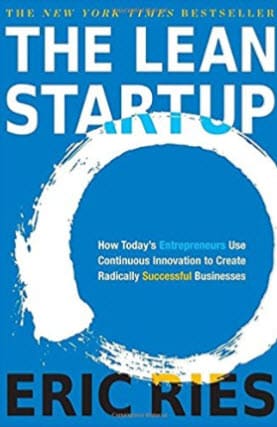Book Club #6: The Lean Startup, by Eric Ries
 Disruption seems to be a constant in the “you economy” of today. Taxis and even public transport are being disrupted by Uber and Lyft. Hotels and motels are being disrupted by Airbnb.
Disruption seems to be a constant in the “you economy” of today. Taxis and even public transport are being disrupted by Uber and Lyft. Hotels and motels are being disrupted by Airbnb.
Billboards are being disrupted by the one device most people are likely to be looking at when they aren’t driving a car (and even if they are): their mobile phones.
Eric Ries and the movement he kicked off when he authored The Lean Startup is disrupting a very old idea: that you need a business plan to build a successful business.
Why the traditional business plan helped
If you talk to most business owners and asked to see their business plan, they might go to some corner of their office or filing cabinet, dust it off, and hand it to you. It hasn’t seen their eyes or hands since it was first written ages ago. Others will tell you they never had one.
We know that business plans aren’t necessary for success, but it was the process of building a business plan that could help crystallize ideas about what kind of business you were building and how you would do it. More importantly, for bank financing, the buyer will be required to furnish their business plan.
Why a business plan is often irrelevant today
In one word? The internet.
In a world in which you can start a business in 60 seconds…through a crowdfunding project…or by turning your car or spare room into a revenue stream…or by using instant broadcast capabilities that can be monetized through something like YouTube…a business plan is, at best, a starting point, and one that’s going to use significant time and energy to, at best, guess at the market.
The MVP
Ries advocates for the MVP: the minimum viable product. What can I get out there as quickly as possible to find out if the market even remotely cares about my product and/or service? Once you’ve validated your business idea via customers willing to give you money for what you’re offering, you can poll them to find out what features they liked/disliked in order to “pivot” and make your offering better.
This makes business much less like opening a restaurant and much more like making one dish well over and over until you can start to build a series of dishes, which may in time lead to opening a restaurant. Or not. What matters is a relentless laser-like focus on viability and profitability from the jump, which makes starting a business a lot less intimidating and a lot more craft-oriented.
A hybrid approach
At Apex we advocate a hybrid approach. Obviously if you’re bootstrapping and starting a new business from scratch, Ries’s approach is both affordable and logical. But as any business grows into maturity, you will need to create a business plan built on all your pivots and iterations. This should be done not just as a way to track your progress, but also to have a document for traditional funding should you ever want it to grow your business, or to give to a potential buyer to make their path to financing easier.
The thesis of the book is not a simplistic assertion. It’s backed up by case studies, examples, and evidence. You can find a copy of it here.


